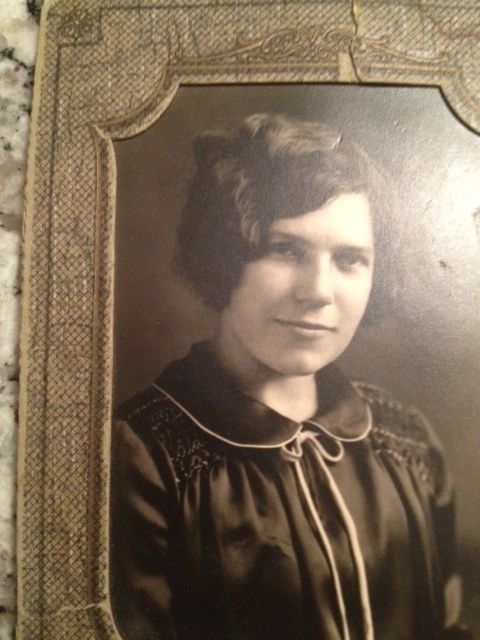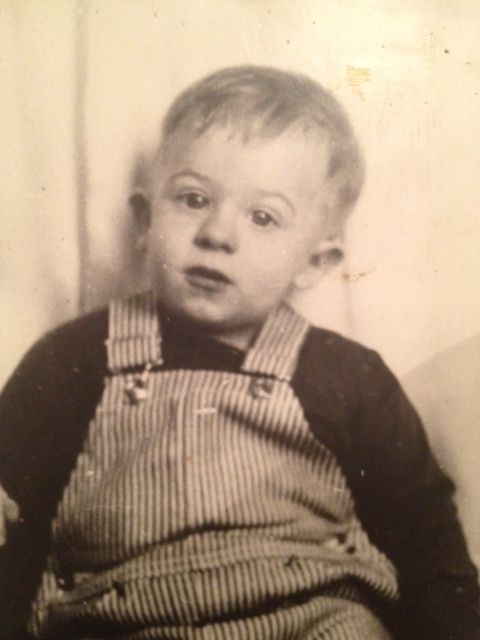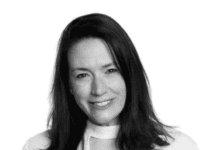A Minnesota Farm Boy
I grew up in northern Minnesota – the closest metropolis was Fargo, North Dakota. From the time I was in first grade until midway through my senior year, the farm that was my family’s home was six miles from the nearest town, Dent, Minnesota. Its population was 183. When I was eight months old, my mother fell off a horse and didn’t survive the fall. My father had no means of taking care of me and left me with my grandfather, an aunt and her two brothers. These were my beginnings.

My grandfather had lost his farm during the great depression, and the family was referred to as “sharecroppers”, I later learned. From the depression years until I left for the Air Force the day after I graduated my senior year of high school, we farmed on other people’s land, giving them a portion of our crops as rent. I knew we didn’t have much but, because my family loved me I never really complained. We always had food on the table -and good food-because my aunt was an exceptionally innovative cook; she baked and made everything from what was raised and available on the farm.
I do mean everything. She made her own butter from the milk from the cows. I remember rolling the churn as a small boy. My uncle and grandfather butchered a pig and a steer each year for meat. Everyone tended a garden for vegetables, and my aunt knew how to preserve things for the winter. We grew chickens for eggs; some we sold (along with milk) to the Dent creamery. We grew hay for the cows to eat and they drank water from the lake that bordered the property we lived upon.
We knew another branch of the family that was part of an entirely different social strata than us, but my grandfather was fiercely independent, and refused to call his cousin, Roy E. Dunn, speaker of the Minnesota House for anything. I only remember him coming to visit as election times approached, when he would come by the farm with his friend Hubert Humphrey to request my family’s votes.
I walked two miles to school and back daily up through the third grade, when we were able to obtain a used bicycle for $5.00. That was one of the most exciting things in my early childhood since, when the weather was good enough, with snow and ice not covering the road, it made that two miles go quickly! I had to get up every morning before the crack of dawn to help milk the cows and, upon returning home, had to go out into the fields to bring them home for the evening milking.
Two or three times annually, we went to a “small” town about twice as far away as Dent (Richville), to get our clothing at a second-hand store. Such was my life as a small boy in the 1950’s and 60’s.
Life became somewhat easier when I reached the seventh grade and began taking the school bus to Perham, where I continued school up through graduation. We were still “economically disadvantaged” until I graduated, never having “extra” funds for many extra things. I never attended a prom, never went on a date, and never had a girlfriend. I continued to rise early and go to bed late, always taking care of the cows. Early fall was a little more complicated because of harvesting the crops. That’s when we cut the hay, the wheat and oats, and paid the owner of the land with part of what we raised. The only “extra-curricular” kid activity I participated in was high school sports. I was recruited for by a wonderful football coach, who I still communicate with today.
I never knew how privileged I was! You see, I was born white. I had no idea what black people in other parts of the country had gone through. I had never even seen a black person other than on television. We didn’t have a television until I was in the seventh grade and, even then, we only had one station, WDAY in Fargo, N.D. And, I didn’t get to watch very much TV much with school, farm work and football, track and wrestling practice (I caught a ride home with a neighbor boy who had a car from practices those early years).
My First Car, a 1949 Nash
Just in time for my junior year, I bought a 1949 Nash for $50. When it didn’t make it home from the dealership. I returned to the dealer and told them it was alongside the road and asked if they get it and fix it. They said no, but they would sell me a 1955 Oldsmobile for $400. I said it took me a year to save the $50, which I earned by cleaning neighbor’s barns. No- I didn’t have $400.
They said okay, we’ll give it to you for $350 since you already paid $50 and you can pay us $25 a month until it is paid. Could I do that? I said I would work more and find enough to do to pay. Thus, I became the proud owner of that car! Would that have happened if I were Black and lived in the South? Privilege isn’t just money! I was given chances that, from what I have heard, were not then and often still are not available to black children.
Goodbye Minnesota, Hello Air Force
Leaving for the Air Force at 18, my aunt and uncle were forced to leave the farm because I would no longer be there to help them (I was too naïve to understand how much I must have hurt them, but I hated the Minnesota cold, with temperatures that were often far below zero much of the winter). Plus, I had never loved the farm life, although now “as an old man” there are times I miss it.
I met my first black people in basic training, and later became friends with many throughout my years in the Air Force. In fact, my two roommates throughout a year and a half of my service time (Skip and Leon) were both black and we got along well and, in fact, they were almost mentors to me in many ways – teaching me of a few more “civilized” ways to live since I had always been a farm boy.
After the Air Force, I worked for the Daily News, in New York, a very metropolitan city. It was the perfect place for me. I loved newspapers as a child. I sold worms I dug from near the pig pens to get money to subscribe to the Minneapolis Tribune, the Minneapolis Star and the Fargo Forum. The Daily News was integrated. Everyone was friendly. I rode the subway home; it was very integrated with every race and nationality. I had an evening job at a hamburger joint and went to Pace University on the GI Bill – all integrated. The Air Force had helped me build my life. I was able to complete my BBA, an MBA and a doctorate minus the dissertation, all while working full time at the News and Wetson’s Hamburger Shops.
Economically Challenged, But Still Blessed
I may have been poor. We may have had to create our own livelihood, meals and home through hard work and never actually owning anything while growing up. I had never found it difficult to get a job, even if it was cleaning barns as a kid. My aunt was a very religious woman, so I went to church three times weekly and never did anything to get into trouble. My aunt and uncle bringing me up so well meant I would be given a top-secret cryptographic security clearance and get a significant assignment with the Air Force. I was in a very special group, as were roommates Skip and Leon, who were great people who also had excellent upbringing, as did others in our “air force vocation.” Later, I learned our “jobs” earned us special treatment and benefits, even after we left the service.
My time at the New York Daily News ended in 1980, when I was recruited by Times Mirror to come to the Dallas Times Herald. The night of my departure from New York, people at the News gave me a huge going away party. Celebrating, I had a bit too much to drink at the party. After riding the Long Island Railroad to my train station, I was driving my car to pick up my sons from a babysitter when I was pulled over for driving a bit erratically. The police had me walk a straight line and asked me how far I had to go home. When I told them, they told me to drive slowly and carefully and they would follow to insure I got home safely. Would that have happened had I been Black?
Learning About Racial Justice
I now know I was naïve and inexperienced with racial justice. Recently, I read the book “Grant”. I learned a lot about how Black people were treated in the south during the centuries of slavery. Even more disturbing, I read what happened after Lincoln was assassinated. I learned about Grant’s efforts during Andrew Johnson’s presidency and how only Grant stopped so many Blacks in the south from being punished severely and killed. I also discovered that strong civil rights legislation was passed during Grant’s eight years as President and how those rights were all taken away in the first few years after he exited the office. And, even under Lyndon Johnson’s presidency in the 1960’s not all the benefits that Grant had won for Blacks were restored. I was amazed at how little I knew.
Saturday evening, June 13, 2020, a few things suddenly became clearer. I watched the entire body camera footage and the footage of other people about the tragedy in Atlanta. The longer I watched, the more I realized what ‘White Privilege’ is and how I benefited from it my entire life.
Yes. That had to be White Privilege. It hit me right between the eyes. Rayshard Brooks was not afforded that privilege. I listened to over an hour of conversation between Mr. Brooks and two officers. He was cordial and respectful throughout the questioning. He tried to cooperate. Yes, he wasn’t entirely truthful, trying to talk his way out of having been drinking. I have to ask anyone and everyone, who wouldn’t? I can’t remember what I said back in 1980. However, I’m sure I didn’t volunteer exactly how many drinks I had that evening.
Would I have been shot if I were a black man? Would I have had anywhere near all the opportunities I have gotten throughout life if I was black? Throughout my professional career in Dallas, when I often took clients out to dinner and had drinks, would I have been able to get home without worry? Now, I understand, but realize I have more to learn.













